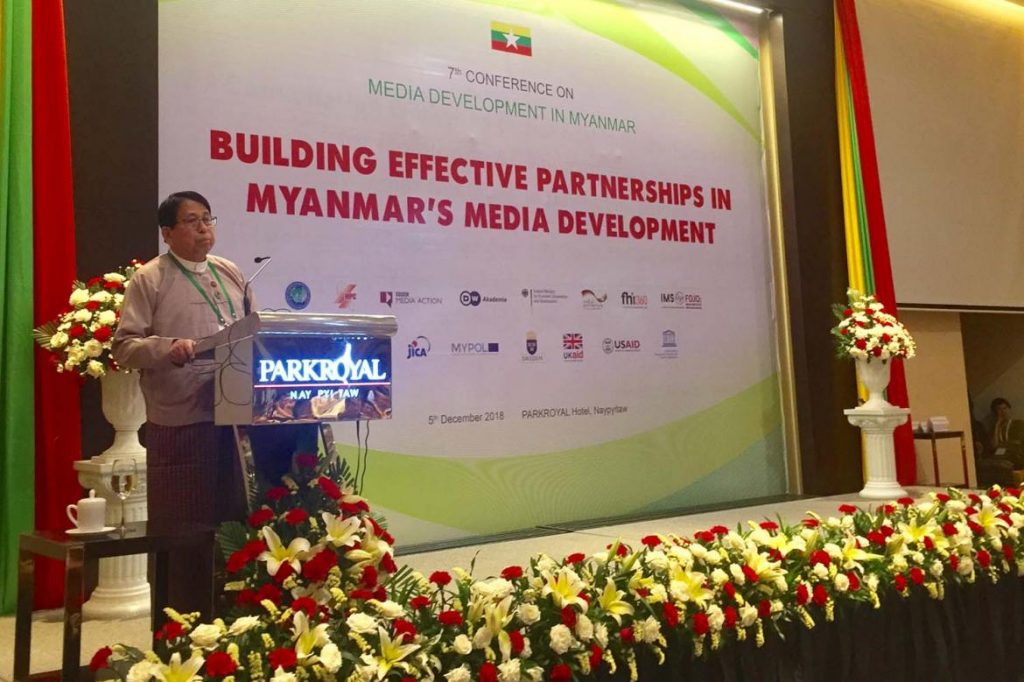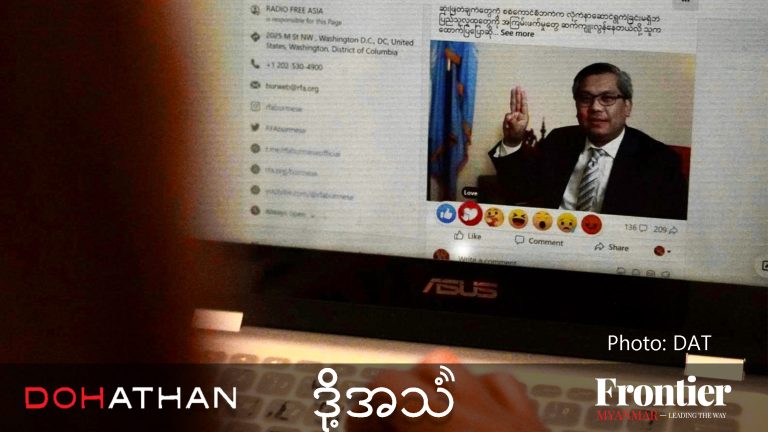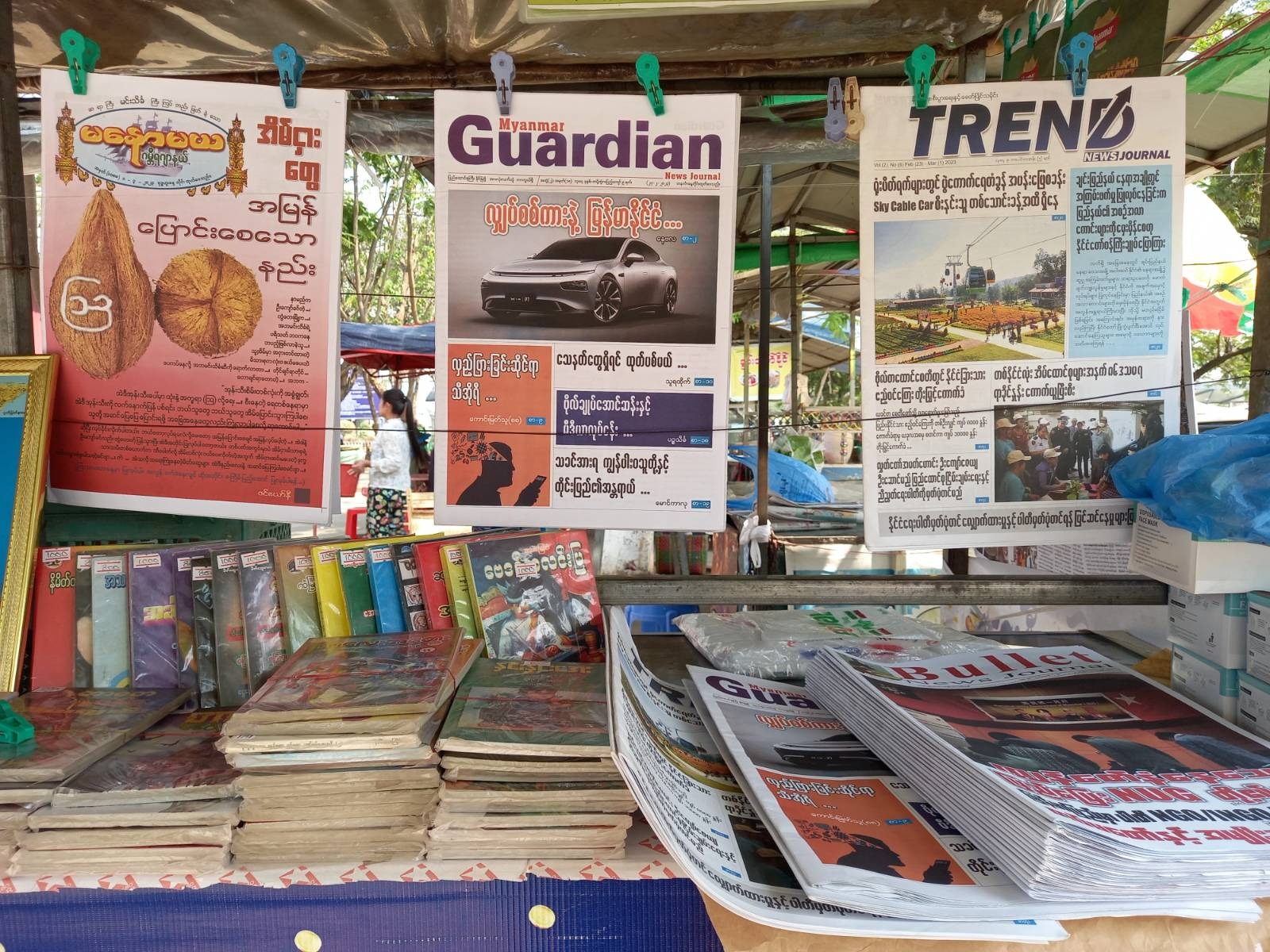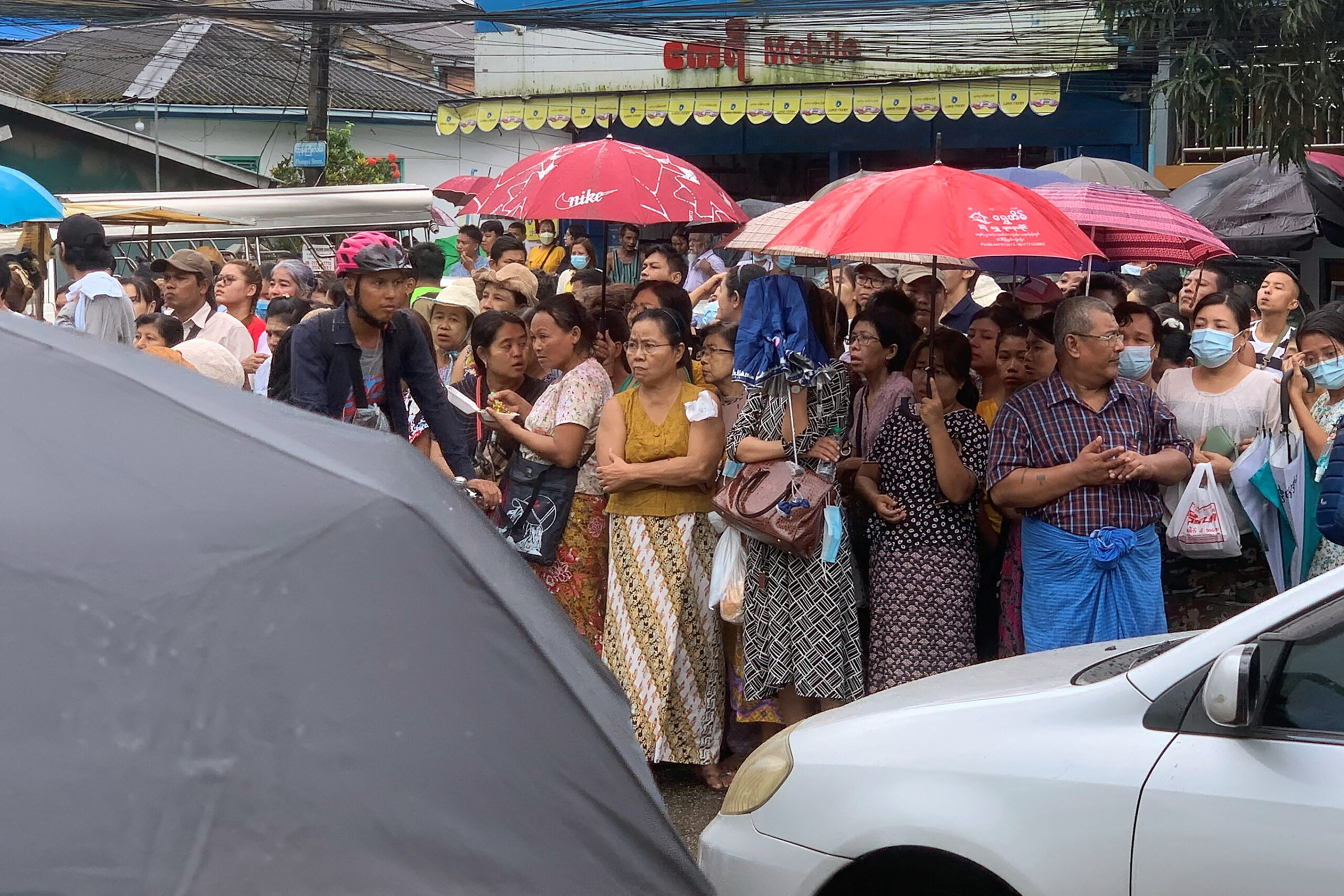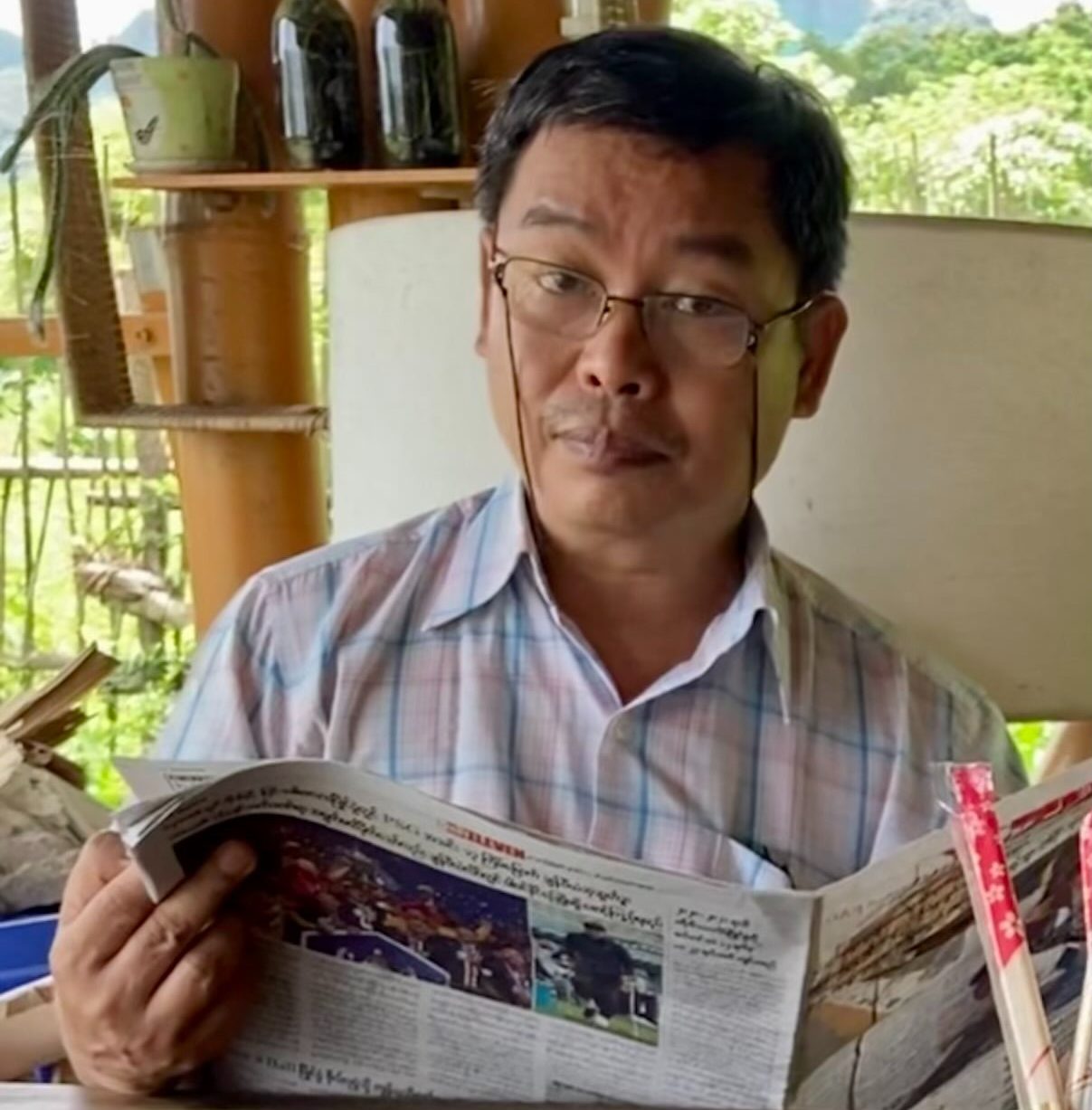By SANN OO | FRONTIER
NAY PYI TAW — Union Minister for Information U Pe Myint has refuted claims that media freedom is deteriorating under the National League for Democracy-led government, labeling research by international watchdog groups as biased.
“I’ve been hearing that our country is deprived of media freedom, even more so now than it was under the previous government,” he told a media development conference in Nay Pyi Taw on December 5.
“I would advise those who have been saying this to avoid blaming the government indiscriminately. Make accusations only after conducting a detailed assessment of the facts and figures. Only then will the government be able to consider the accusations.
“Since the Press Scrutiny [and Registration Division] was dissolved in late 2012, press freedom has improved in Myanmar and media can comment freely on the government. Just review how much commentary and criticism there has been on the work of government departments and the government’s undertakings.”
Support more independent journalism like this. Sign up to be a Frontier member.
He urged his audience to compare the material that has been published during his government’s term with the material published in the past. “If you hire a really impartial study group to carry out a piece of research on the issue, you’ll discover the real situation,” he said.
Meanwhile, in courts across the country, 44 members of the media are facing legal action, in 28 cases.
A survey of 200 journalists released on May 2 by Free Expression Myanmar, found that journalists believe legal, physical and psychological violence towards the media is on the rise. The government, including the military, was seen as the main cause of deteriorating press freedom.
Journalists said there is little evidence that the government or the courts are trying to address either violence towards the media or the decline in freedom of expression.
Before pre-publication censorship was lifted in 2012, Myanmar ranked 174th out of 180 countries in the World Press Freedom Index, compiled annually by Reporters Without Borders (RSF). Its position improved to 131st in 2017 as media reforms were rolled out, but in 2018, it fell six places to 137th.
Pe Myint on Thursday condemned the global rankings and accused international organisations of advancing the attitudes of governments that fund them.
Reporters Without Borders is not an independent organisation but operates with support from the French government, he said. Its leading members were French or were born and brought up in Europe and they held European opinions, he said, indicating that this amounted to bias.
“The individuals and organisations that classify international media and, in other words, that are above the media, are influenced by and biased in favour of those who fund them,” Pe Myint said. He also railed against the RSF scoring system, claiming there was no transparency.
Sixteen media and civil society organisations protested against the minister’s comments, releasing a statement on December 5 which said Pe Myint had ignored research-based explanations of deteriorating media freedom and had ignored the main findings outlined in the reports.
The statement said if the ministry accepted the reality that has been unanimously highlighted in media freedom indexes and assessments compiled both by domestic and international organisations, then some of the factors contributing to Myanmar’s deteriorating scorecard could be resolved.
The groups also objected to the minister’s use of the conference to berate the media, arguing that it betrayed the spirit of the event.


